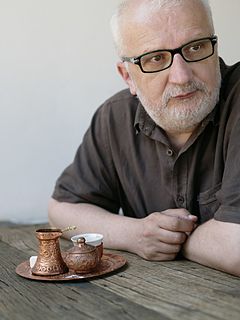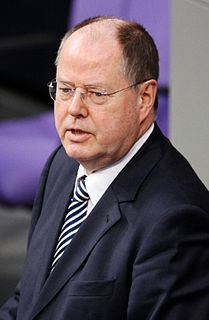A Quote by Josephine Meckseper
The United States of America are more of a concept than a historically evolved geographical conclusion, compared to European countries. I find this extremely interesting. Europe seems objectively more progressive and more civilized at a time when the U.S. is entering a regressive, oppressive, totalitarian era. You've got racial issues, the endurance of Puritanism, other seriously anachronistic religious fanaticisms, and it's all linked to conservatism. Despite all the unresolved deep-seated problems, the U.S. is still a country where it's less important where you come from than what you do.
Quote Topics
America
Civilized
Come
Compared
Concept
Conclusion
Conservatism
Countries
Country
Deep
Despite
Endurance
Entering
Era
Europe
European
European Countries
Evolved
Extremely
Find
Geographical
Got
Historically
Important
Interesting
Issues
Less
Linked
More
Oppressive
Other
Problems
Progressive
Puritanism
Religious
Seated
Seems
Seriously
States
Still
Than
Time
Totalitarian
United
United States
United States Of America
Unresolved
Where You Come
Related Quotes
Unemployment is higher in Europe than in the United States and primarily concentrated in immigrant minority populations, so people are worried about what's going to happen and if American-style ghettos are emerging in Europe. There are some of the problems there that America sees associated with the lack of economic inclusion - family breakdown, gang behavior, and racial tensions. I get the sense that in Europe they are much more concerned about these issues than in the United States.
The major difference for us in America with respect to Hispanic immigration is that it is so large and that it is coming from neighboring countries rather than those countries off the Atlantic or Pacific. That creates different issues and different problems for us as compared to the past. It is still very different, however, from the situation in Europe where we see people with a very different non-European religion coming from neighboring countries.
Look at Germany where 20 percent of the labor force is in manufacturing compared to about 8 percent in the United States. Germany pays a lot more conscious attention at the level of the federal government to attracting and keeping manufacturers in Germany. So this is something that other countries do that the United States has not historically done.
The European Union cannot be compared to the United States. America is a nation, but Europe is not. Europe is a continent of many different nations with their own identities, traditions and languages. Robbing them of their national democracies does not create a European democracy - it destroys democracy in Europe.
America and Europe are getting closer to each other. In the U.S. you've always had hip - hop, the blues, soul, and rock. For the last decade, there has always been a lot of electronic music in Europe. When I was just at Coachella, I noticed how the music they play there has become electronic, techno, deep house, more European - so I think it's more similar than before.
There are still deep-seated structural problems that threaten the economic balance in the world: Between the United States and China, for example, but also within Europe. We have taken a few steps toward taming the financial markets, but we haven't come nearly far enough to rule out a repetition of the crisis.































